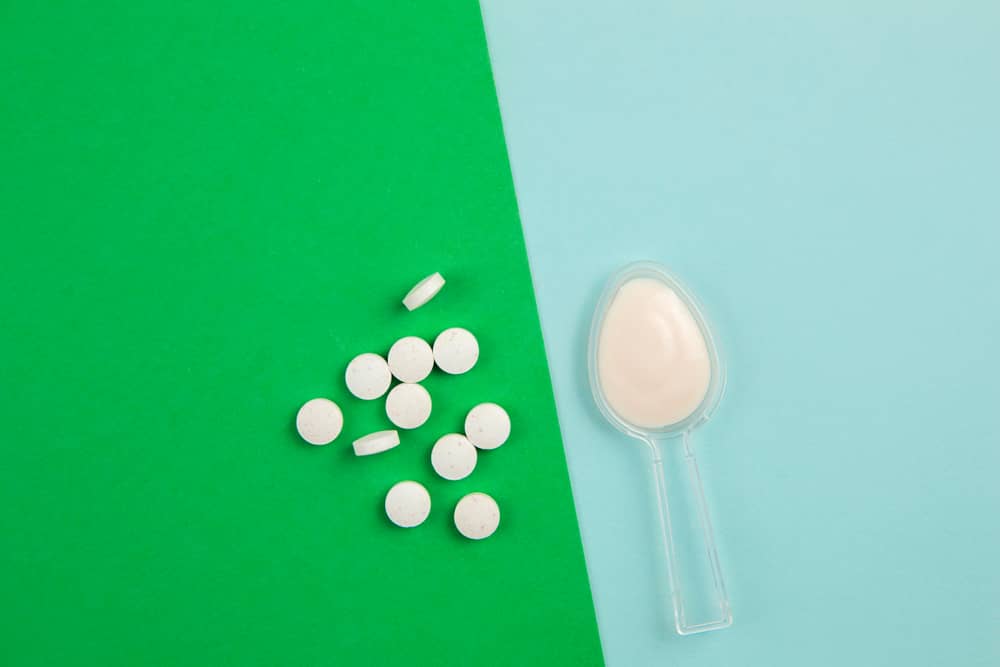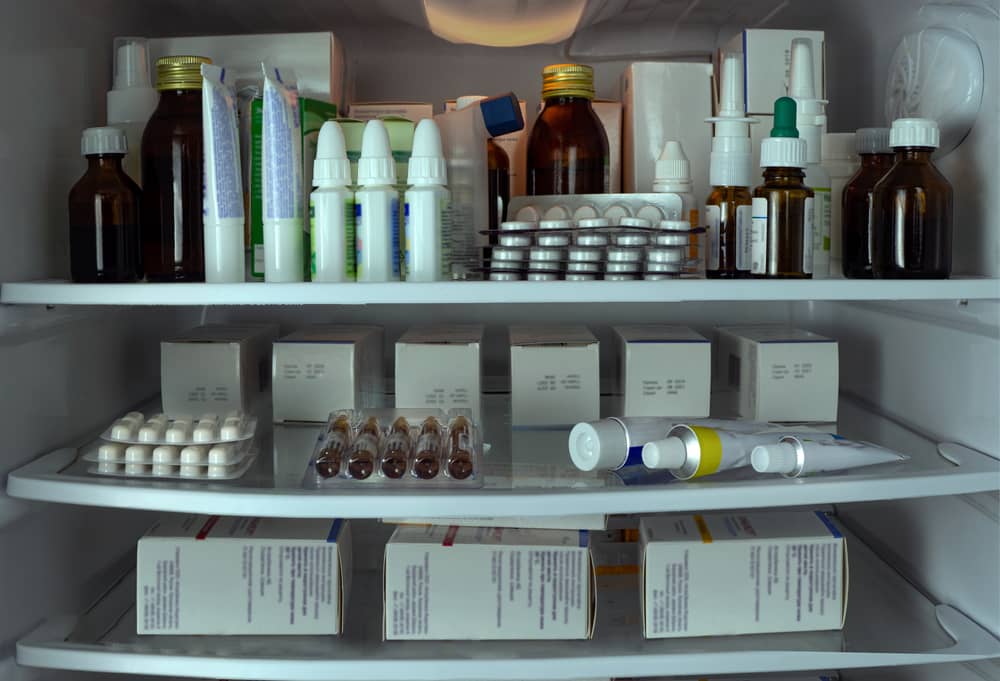Many people hesitate to continue their probiotic routine when they are on antibiotic therapy; they’re not sure whether the two will clash with one another. We’ll explore this question in detail below.
Key Takeaways
- Probiotics contain a plethora of healthy bacteria that will help your gut.
- Antibiotics kill off all bacteria in your body — whether it be good or bad.
- Probiotics can replenish the colonies of healthy bacteria that your digestive tract needs!
Can you take probiotics with antibiotics? Or, are they something that you should avoid (like dairy products)?
Let’s break it down. Antibiotics play a critical role in killing off unwanted bacteria in your body; however, they can also kill off good bacteria in your gut, which can make you susceptible to diarrhea and other side effects. If you always get the runs after taking a course of antibiotics, this is the reason why.
You can reinforce and strengthen the healthy bacteria flora by doing something as simple as taking probiotics. It’ll bolster your immune system and your digestive system with healthy bacteria to keep you feeling in tip top shape.
Yes! Take Probiotics with Antibiotics!
Benefits of Taking Probiotics
So, the short answer to whether you should take probiotics with antibiotics is yes. There are no recorded unwanted side effects associated with this combination.
In fact, it’s quite the contrary. There are many reasons why you should take probiotic supplements. They include:
- Prevention of antibiotic-associated diarrhea. A lot of people who take probiotics will often get antibiotic-associated diarrhea. You can avoid having the runs if you take probiotics when you go on antibiotic therapy. In fact, a recent study found that taking probiotics when you’re on antibiotic treatment can reduce the risk of antibiotic-associated diarrhea by 52%!
- Yeast infection prevention. Another common problem that many women run into when taking antibiotics is yeast infections. They get yeast infections because a healthy vagina relies on healthy yeast and bacteria. Antibiotics kill not only harmful bacteria, but also good bacteria. This gives bad bacteria a chance to move into your nether regions. Taking probiotics can help prevent yeast infections.
- Maintains a healthy gut. If you want to avoid bloating or other gut issues, you’ll also want to strictly adhere to your probiotic routine, as it constantly replenishes your digestive tract with the healthy bacteria that it needs.
Basically, the take-home message is that it would be a good idea to take probiotics with antibiotics. It’ll not only help you recover faster from bacterial infections, but it will also help you feel healthier. You’re less likely to experience any of the adverse side effects that typically come with antibiotic therapy.
What to Consider

If you’re looking for a probiotic to go with your antibiotic treatment, you should consider the three “D’s”:
- Dose. This is measured by the amount of healthy bacteria that is in the probiotic. The unit of measurement used is colony-forming units or CFUs. Ideally, you want something that’s at least 10 billion CFUs.
- Diversity. The type of bacteria that are in the probiotic matters a lot more than you’d think, as each type of bacteria will take on a different job. Ideally, look for a probiotic that contains a lot of diverse strains.
- Delayed-release mechanisms. This prevents the probiotics from dissolving in your stomach. If it does, the healthy bacteria will get eaten up by your stomach acid. If you look for probiotics with a delayed-release mechanism, more healthy bacteria will make their way to your digestive tract.
What’s the Best Time to Take Probiotics when You’re on Antibiotic Therapy?
Most experts recommend taking your probiotics at least two hours after you’ve taken your antibiotics.
If you take them together, the antibiotics can actually kill off the good bacteria in the probiotics. However, if you wait two hours, the antibiotic level in your digestive tract will be fairly low, so it won’t be able to kill off as many healthy bacteria in the probiotics. This allows your probiotics to be as effective as it should be.
You should continue to take your probiotics after your antibiotic treatment has ended in order to prevent bad bacteria like Clostridium difficile from invading! This bacteria is responsible for the unwanted side effects that are often associated with antibiotic therapy.
Our Recommendations
Finding the right type of probiotics for your antibiotic treatment is key. It can be difficult to figure out what you need or which probiotic would be the most effective. We highly recommend the following products.
Best Probiotic for Preventing Diarrhea: Nutrition Essential Probiotic
If you almost always get diarrhea when you’re prescribed antibiotics, you’ll want to get your hands on this probiotic. It contains a lot of acidophilus bacteria, which has been known to help ease digestive tract issues, like diarrhea and bloating. The bacteria in this probiotic can affect your gut in a positive way, so you feel your best throughout all of the antibiotic treatments that your doctors recommend.
Best Probiotics for Kids: Garden of Life Dr. Formulated Probiotics Organic Kids+
It can be difficult to get your kids to take probiotics even though it can prevent some of the common side effects associated with taking probiotics. Fortunately, you have the Garden of Life Dr. Formulated Probiotics Organic Kids+. We LOVE this probiotic because it tastes like berry-flavored candy, and because it contains 5 billion CFUs, which is one of the larger doses when it comes to probiotics for kids. It’ll replenish their gut bacteria with healthy strains, which is important after an antibiotic exposure.
Best Probiotic for Infants: BioGaia Protectis Probiotics Drops
Don’t Forget Your Diet!
In addition to taking probiotic supplements that will replenish the amount of beneficial bacteria that are in your gut microbiome, you should also try to eat probiotic rich foods. Incorporating some of the best probiotic foods to your diet can make a fairly large difference as well. Some of our favorite foods include:
- Yogurt. It’s not only a healthy snack, but it’s so versatile. You can add a bunch of different toppings, like granola or even fresh fruits. More importantly, yogurt also contains a lot of calcium, so it can improve your overall bone health.
- Pickles. If you love a crunchy, sour snack, you can’t go wrong with pickles! When it comes to this delicious treat, you’ll need to be a bit picky. Pickles made with vinegar don’t contain a lot of probiotics, but fermented ones do!
- Kombucha. If you enjoy a refreshing drink, make your own Kombucha or buy it from the store. This wonderful beverage contains a wide variety of different probiotic strains that are great for your digestive tract.
Don’t forget to also eat foods that are rich in prebiotics. Some of our favorite options include leafy bitter greens, like seaweed and spinach, onions, asparagus, barley, oats and roots, like jicama root or chicory root.
Ask a Doctor
If you’re still on the fence or if you’re unsure which antibiotic to take, speak with your healthcare professional for more information! They’ll be able to clarify any questions or concerns that you may have.









